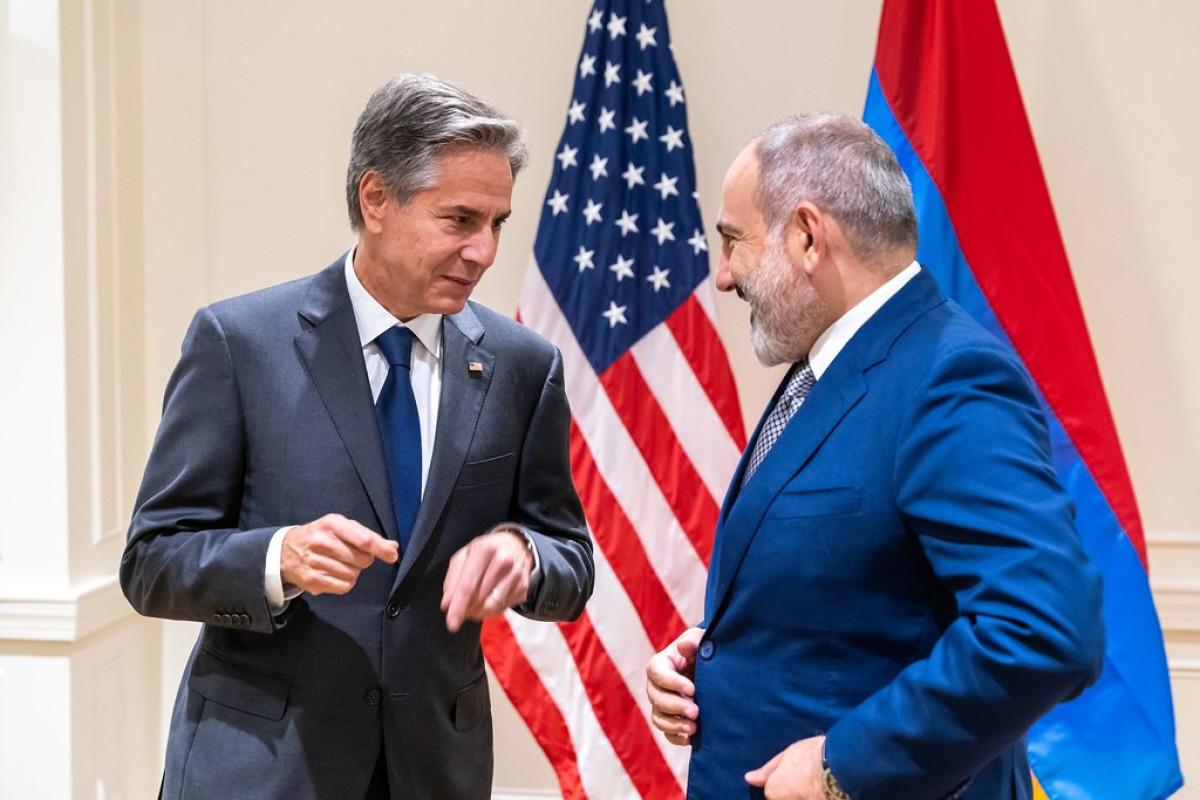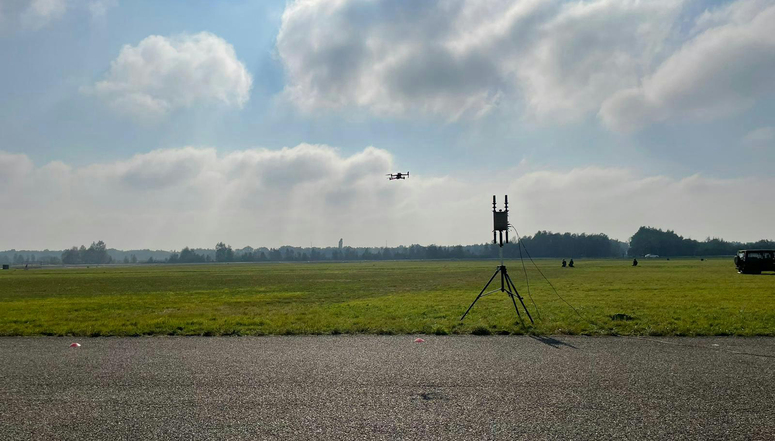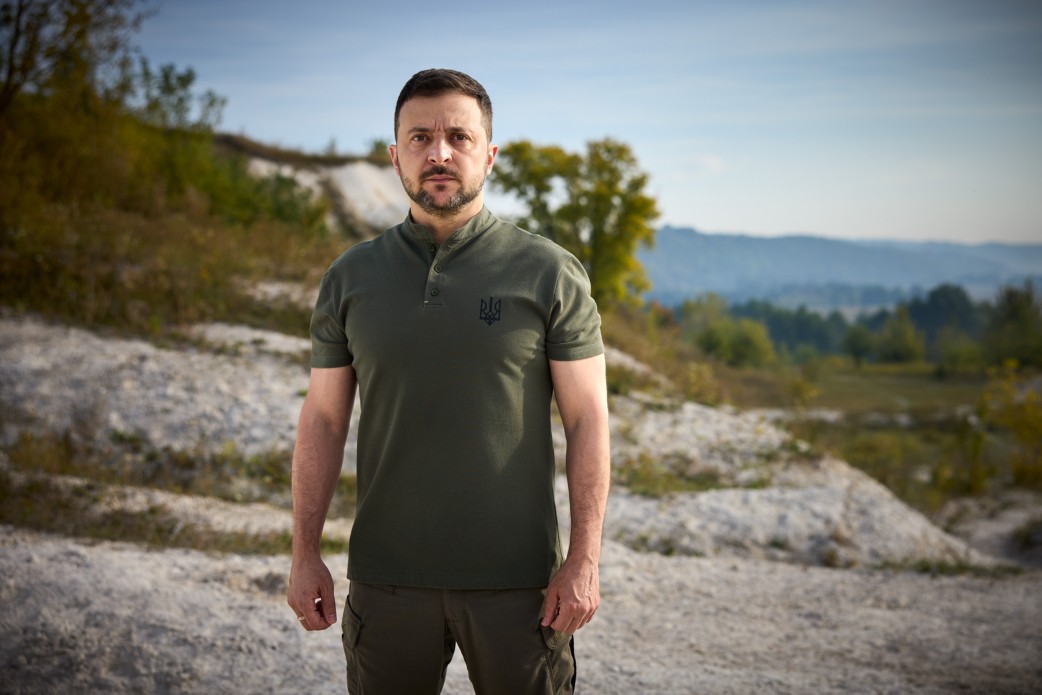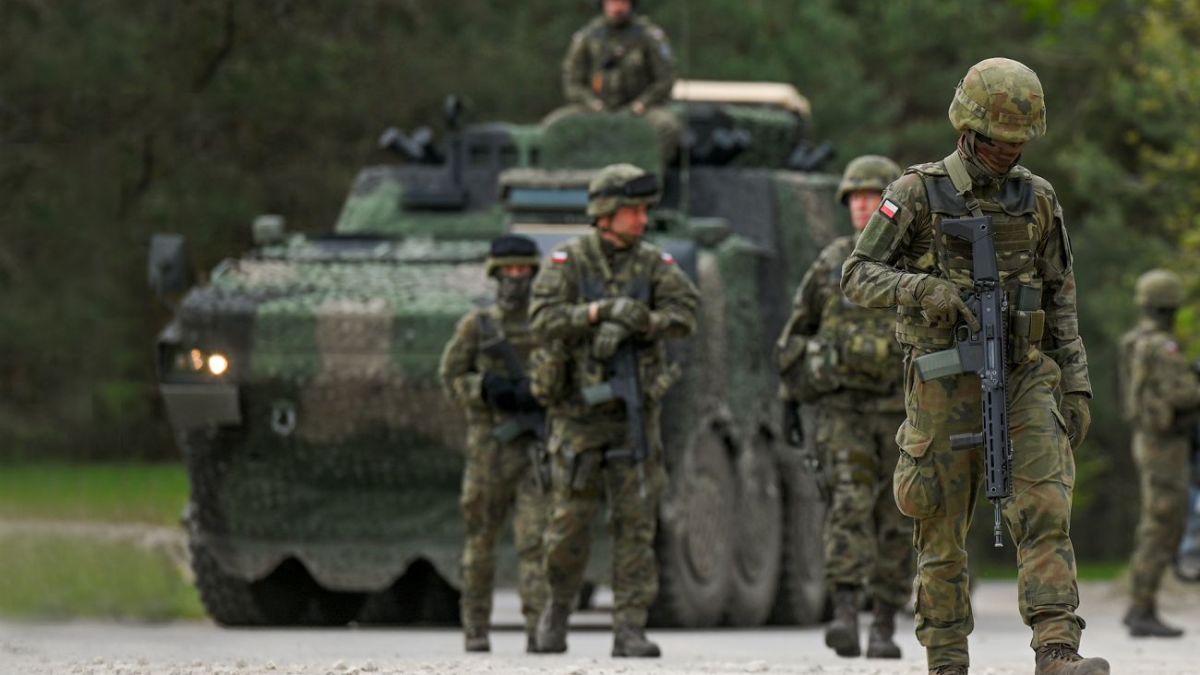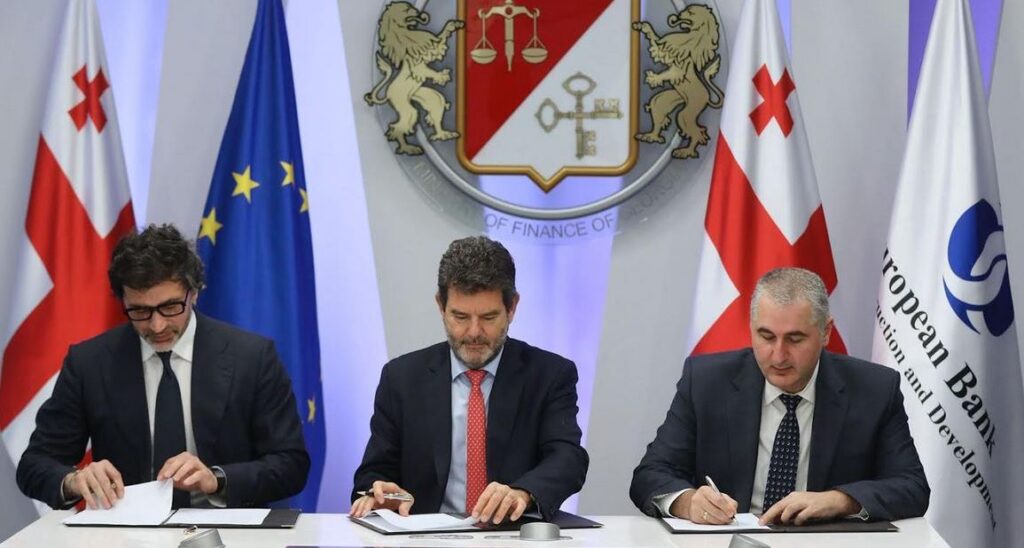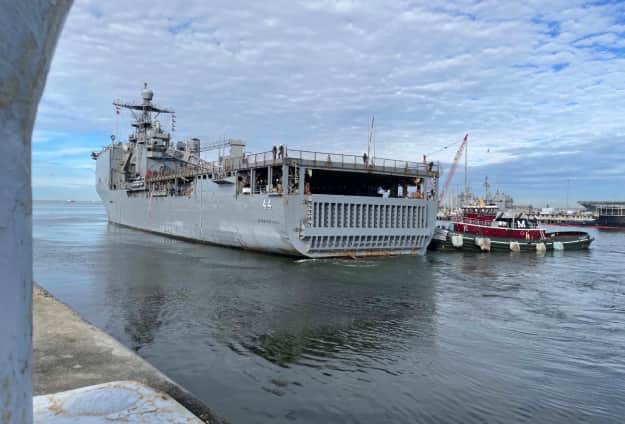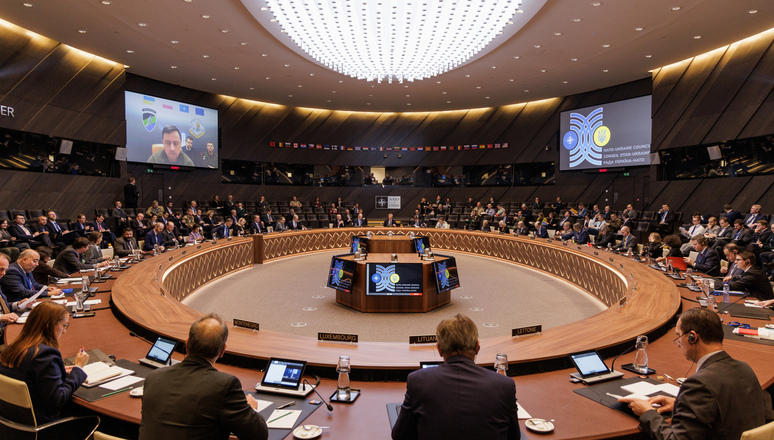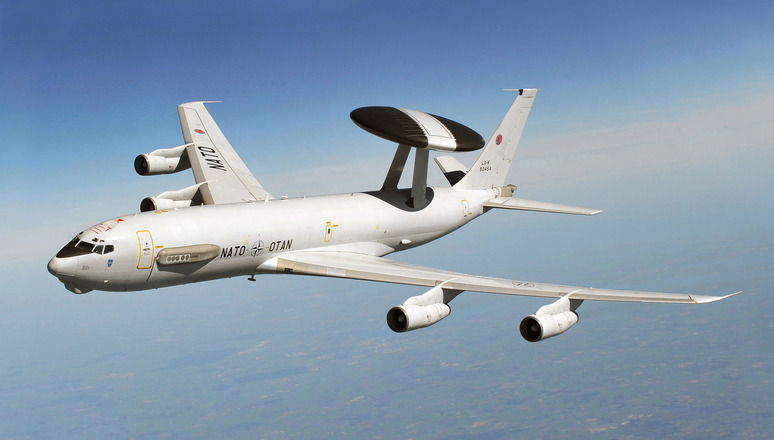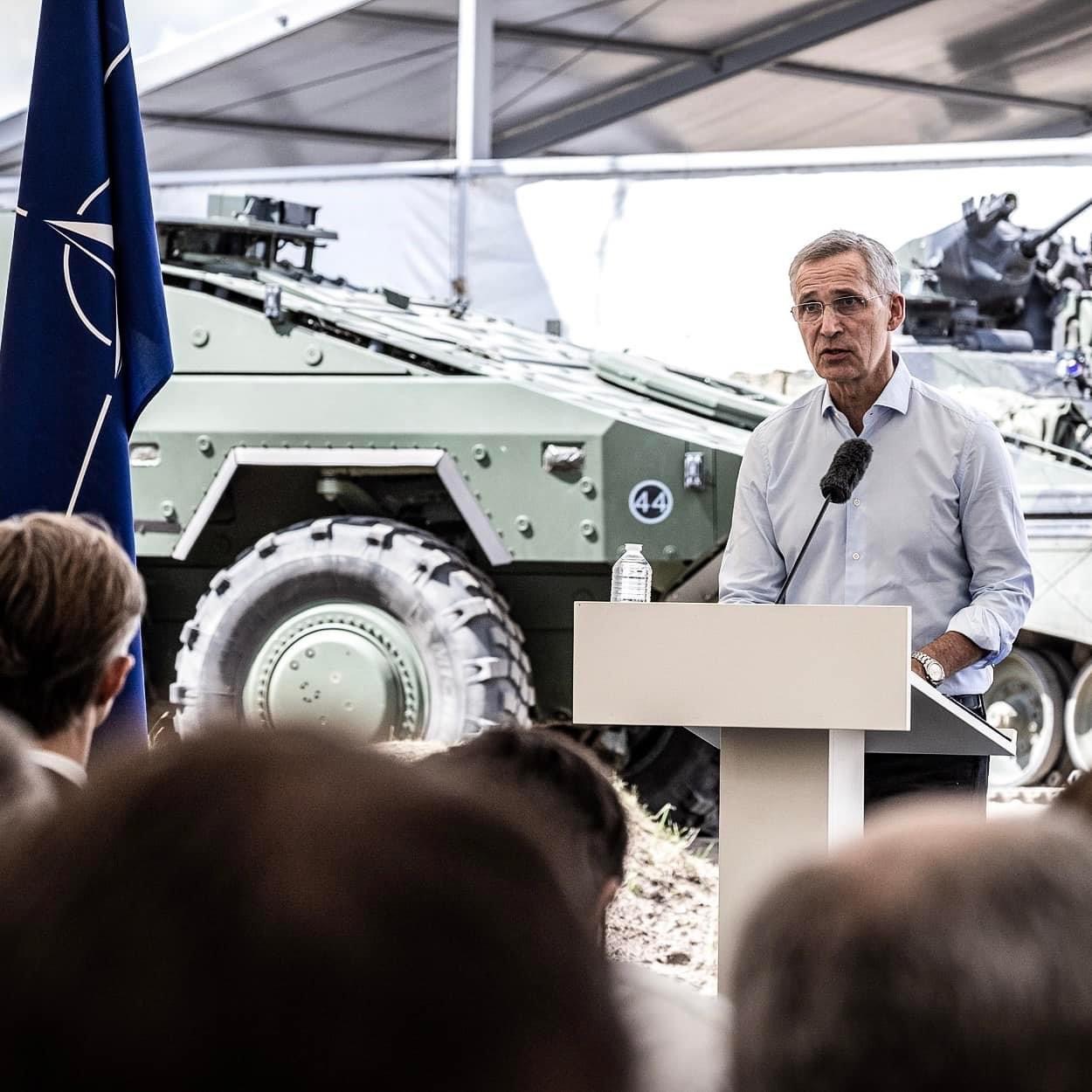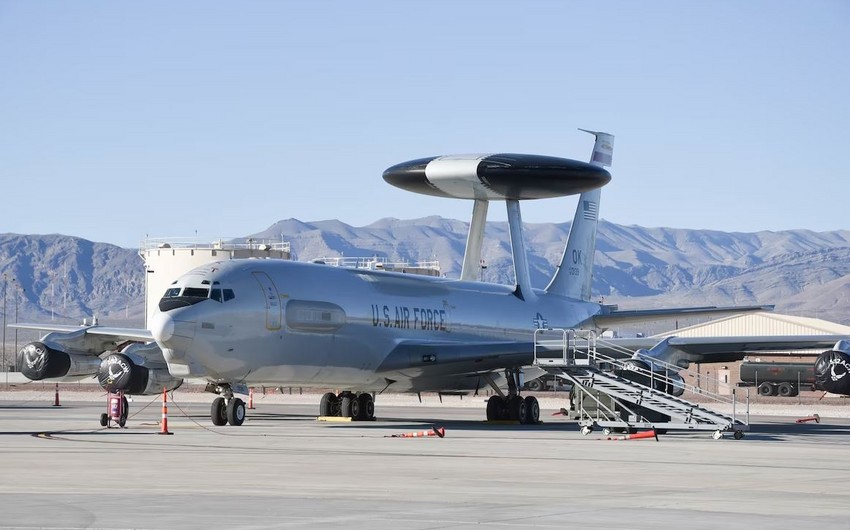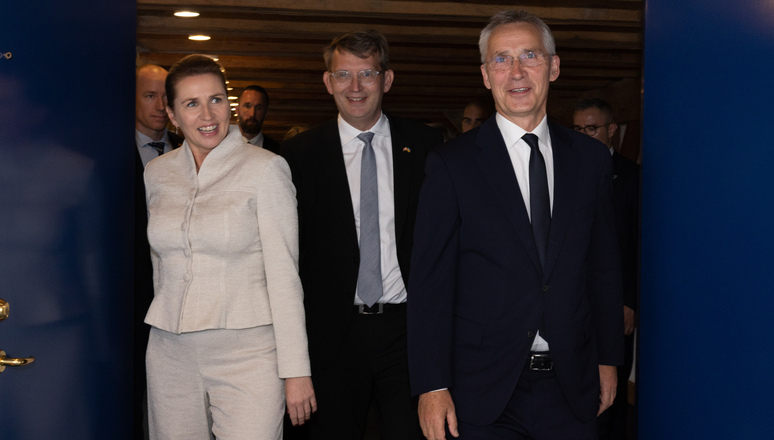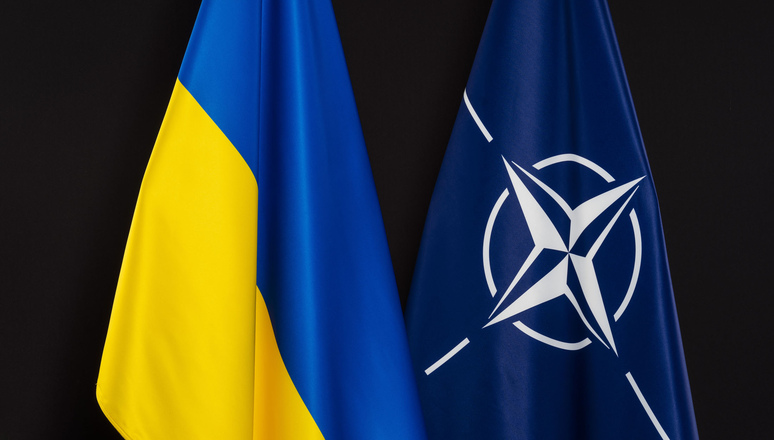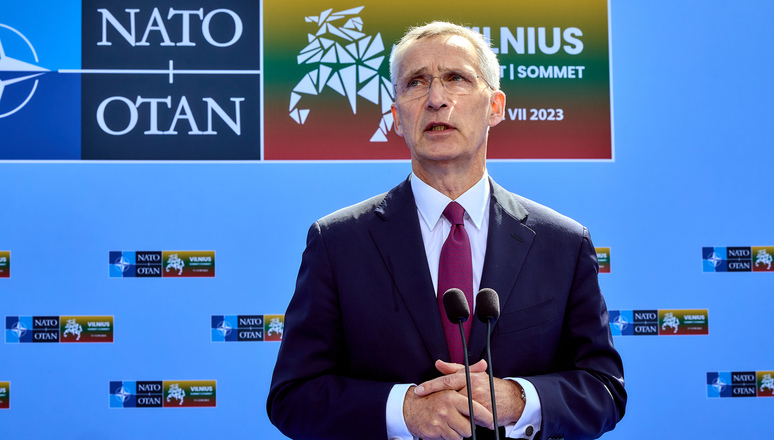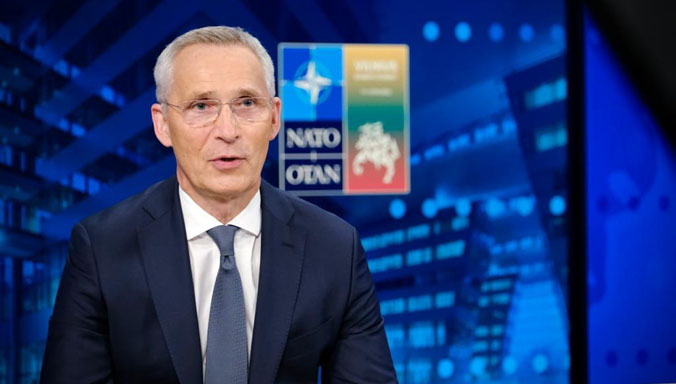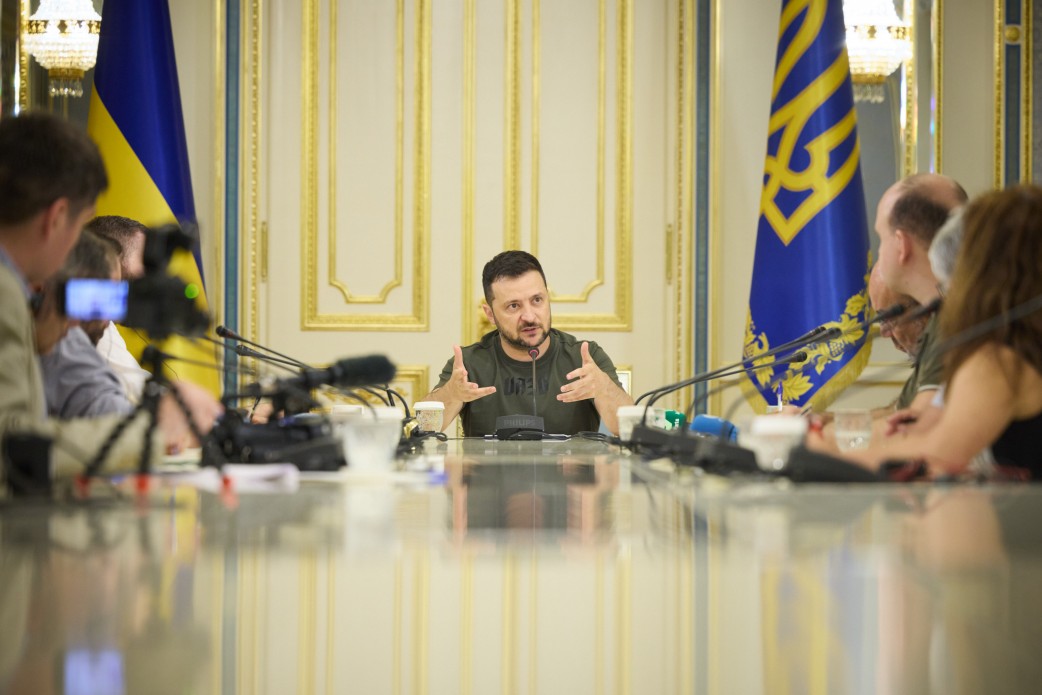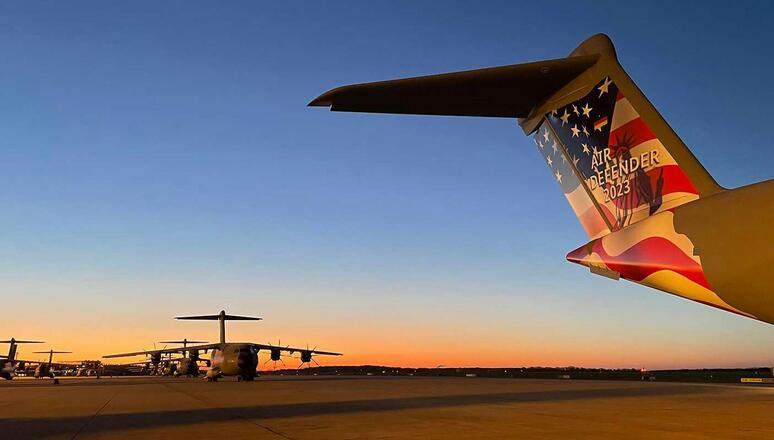World
Armenia to have military attaché in US
According to a decision by Armenian Prime Minister Nikol Pashinyan, Hrayr Geghamyan will serve as the Military Attaché of Armenia in the United States. Geghamyan will serve in this capacity as of September 23, for a period of three years, and his respective residence will be in Washington D.C., adds the aforesaid decision.
U.S. Sanctions MRB Bank in Occupied Tskhinvali Region for Involvement in Russia-North Korea Illicit Payments Scheme
On September 19, the Department of the Treasury’s Office of Foreign Assets Control (OFAC) sanctioned MRB Bank, located in the occupied Tskhinvali region, for its involvement in the network of four other entities and one individual that facilitated and supported ongoing efforts to establish illicit payment mechanisms between Russia and the Democratic People’s Republic of Korea (DPRK). The network helped Russia and North Korea evade sanctions, facilitating the financing of North Korea’s illicit weapons of mass destruction and ballistic missile programs and supporting Russia’s war against Ukraine. In a scheme orchestrated by the Central Bank of Russia, MRB Bank acted as an intermediary for a sanctioned Russian bank, TSMRBank, to establish a secret banking relationship with North Korea’s state-run Foreign Trade Bank (FTB). TSMRBank Vice President Dmitry Nikulin facilitated cash deposits from FTB through TSMRBank to MRB. Nikulin also organized the opening of correspondent accounts for FTB and Korea Kwangson Banking Corp. (KKBC) at MRB and coordinated with North Korean representatives to ensure the delivery of millions of dollars and rubles in banknotes to FTB and KKBC accounts at MRB. Some of the North Korean accounts at MRB were used to pay for fuel exports from Russia to North Korea. The U.S. Department of Treasury notes that “with mounting battlefield losses and increasing international isolation, Russia has become more dependent on North Korea for weapons procurement and economic cooperation.”
Ukraine joins NATO counter-drone exercise for first time
From 10 to 20 September 2024, over 450 participants from 19 NATO Allies and three partner-countries gathered in the Netherlands to test the ability of commercially available counter-drone systems to operate seamlessly together. Ukraine participated for the first time, alongside members of the private sector and research community. During NATO’s annual Counter-Unmanned Aircraft System (C-UAS) Technical Interoperability Exercise (TIE), more than 60 counter-drone systems and technologies such as sensors, drone-on-drone systems, jammers and cyber interceptors were tested live. Ukraine’s first active participation in the exercise is part of the NATO-Ukraine Innovation Cooperation Roadmap endorsed by Allied and Ukrainian Leaders at the Washington Summit. Exercises like the C-UAS TIE provide a unique opportunity to address pressing challenges together, such as drone autonomy and interoperability while also learning from Ukraine’s battlefield experience in countering small drones. Integrating counter-drone technologies into NATO’s Integrated Air and Missile Defence (IAMD) is important to the Alliance’s enhanced deterrence and defence posture. At the 2024 Washington Summit, Allies took steps to further improve the readiness, responsiveness and integration of NATO IAMD, and agreed to support the design and implementation of an integrated air and missile defence architecture for Ukraine.
Zelensky says war has 'Returned' to Russia in independence day address
"The sick old man from Red Square, who constantly threatens everyone with a red button, will not dictate any of his red lines to us. How we live, which path we take, and what choices we make will be determined only by Ukraine and Ukrainians. That is how independence works," Zelenskyy said. Zelenskyy recorded a video address from the Sumy region, near the Psel River a few kilometers from the border with Russia. "The border between an independent European state and the number-one terrorist organization in the world. 913 days ago, Russia unleashed war against us, including through the Sumy region. It violated not only our sovereign borders, but also the limits of cruelty and common sense. It was endlessly striving for one thing: to destroy us. Instead, today we celebrate the 33rd Independence Day of Ukraine. And whatever the enemy was bringing to our land has now returned to their home. And the one who wanted to turn our land into a buffer zone should think about preventing his country from becoming a buffer federation. This is how independence responds.the President said. “Ukrainians always pay back their debts. And whoever wished misery upon our land shall find it in their own home. With interest added. Whoever seeks to sow evil on our land will reap its fruits on their own territory”, Zelensky went on to say. The President thanked everyone who helps the soldiers and the Ukrainian state, everyone who lives and works so that independence works and lives. " I thank everyone who helps our warriors and our state, all those who live and work to keep our independence working and living. Our medical workers, our rescuers, our firefighters, power engineers, our volunteers and entrepreneurs, police officers and farmers, railroad workers, teachers and students. All of them. Ukrainians here, Ukrainians abroad, who help, find, send the necessary supplies, tell the world about Ukraine. And everyone who stays with Ukraine in the temporarily occupied territories. All Ukrainians whose strength has no borders, whose will is boundless. All those to whom I am immensely grateful. And today. And for each of the 913 days of this war. For the cause of each of you. For proving that independence is a cause for everyone. And it has many dimensions”, the head of the Ukrainian state emphasized.
Allies demonstrate strengthened deterrence and defence during Polish-led Dragon 24 exercise
Troops from France, Germany, Italy, Lithuania, Poland, Slovenia, Spain, Türkiye, UK and the US conducted a crossing of the Vistula river near Korzeniewo, Poland, this week (4-5 March 2024). The river crossing was part of Exercise Dragon 24, a Polish-led operational and tactical level multinational exercise and a key element of Steadfast Defender 24, NATO’s largest military exercise in decades. The river crossing was attended by Polish President Andrzej Duda and Lithuanian President Gitanas Nausėda. A series of exercises are taking place under the umbrella of Steadfast Defender 24, which will include 90,000 troops in total from all NATO Allies and Sweden. Steadfast Defender 24 is based on NATO’s new defence plans, and demonstrates NATO’s ability to deploy forces rapidly from North America and other parts of the Alliance to reinforce the defence of Europe. A number of high-ranking NATO officials participated in Monday and Tuesday’s media and distinguished visitors’ days, including Major General Cezary Miśniewski, Deputy General Commander of the Polish Armed Forces; Major General Randolph Staudenraus, Deputy Chief of Staff Operations at JFC Brunssum; Brigadier General Guy Foden, Commander of the NATO Very High Readiness Task Force (VJTF); Lieutenant General Piotr A. Błazeusz, First Deputy Chief of the General Staff of the Polish Armed Forces; JFC Brunssum Commander General Guglielmo Luigi Miglietta and JFC Norfolk Commander Vice Admiral Douglas G. Perry.
EBRD finances Tbilisi’s solid waste management system
Bank to support Tbilisi’s solid waste management and disposal system Funding will help to set up the first waste-treatment plant in Tbilisi Loan to be co-financed by the Green Climate Fund The European Bank for Reconstruction and Development (EBRD) is extending a €22 million loan to Tbilservice Group to improve the solid waste management and disposal system in Georgia’s capital Tbilisi. The funding will support the first waste-treatment plant in Tbilisi, as part of the city’s participation in the EBRD Green Cities programme. The loan is co-financed with concessional funding of up to €4 million by the Green Climate Fund. The project will prioritise the redirection of waste away from the sanitary landfill for comprehensive waste treatment, including mechanical-biological treatment and the recovery of recyclable materials. This will help to significantly reduce greenhouse gas emissions (by 72 per cent compared to the baseline) and improve the overall environment in the city. The project will also address Tbilisi’s priority needs identified under its Green City Action Plan (GCAP) and will support the implementation of a GCAP action (“solid waste action 2”) on the construction of new waste treatment facilities, in line with the strategic objective of improving the city's solid waste management system. Alkis Vryenios Drakinos, EBRD Regional Director for the Caucasus, said: “Tbilisi is one of the first pilot cities under the EBRD’s innovative Green Cities programme that was launched eight years ago. Since then, we have been cooperating with the city and the Ministry of Finance to implement several important projects to help make Tbilisi greener. Today, we are delighted to be making another pivotal step towards improving the city’s infrastructure and its people’s wellbeing.” Kakha Kaladze, Mayor of Tbilisi, said: “For years, we have been partnering with the EBRD in our quest to transition to European standards that are up to date and safe for the environment. As a result, the EBRD is funding crucial projects in our city. One such project is the construction of the first waste-treatment plant in Tbilisi, for which €26 million has been allocated. This will lay the foundation for separation in waste collection and treatment in Georgia – a very important step forward for the city’s people and for the environment.” Lasha Khutsishvili, Minister of Finance of Georgia, said: “Active cooperation continues between Georgia and the EBRD, particularly in terms of advancing green-economy initiatives. Today’s signing of the loan agreement for the Tbilisi waste-treatment project, securing a total of €26 million, marks another milestone in this collaboration. This project aims to elevate Tbilisi to European standards, ensuring environmental protection and enhancing citizens’ health. I would like to express gratitude to our partners for their support in this endeavour.” The EBRD has participated in 290 projects in Georgia to date, with overall investments totalling around €5 billion, 83 per cent of which have been in the private sector. Overall, the EBRD’s green financing in Georgia accounted for 37 per cent of its total investment volume in the country in 2023.
NATO marks the start of Exercise Steadfast Defender 2024
Exercise Steadfast Defender 24, NATO’s largest exercise in decades, began on Wednesday, January 24, 2024 as the dock landing ship USS Gunston Hall (LSD 44) departed Norfolk, Virginia, United States and following a series of operations will commence her transit across the Atlantic. The departure of USS Gunston Hall marks the first tactical movement of Steadfast Defender 24. His Majesty’s Canadian Ship Charlottetown, will depart Halifax, Nova Scotia, Canada for Europe later this month. “The Alliance will demonstrate its ability to reinforce the Euro-Atlantic area via trans-Atlantic movement of forces from North America“ Planned over the course of several years, Steadfast Defender 24 will highlight NATO’s ability to deploy forces rapidly from North America and other parts of the Alliance to reinforce the defence of Europe. “The Alliance will demonstrate its ability to reinforce the Euro-Atlantic area via trans-Atlantic movement of forces from North America,” said General Christopher Cavoli, Supreme Allied Commander Europe (SACEUR). “Steadfast Defender 2024 will be a clear demonstration of our unity, strength, and determination to protect each other, our values and the rules-based international order.” Steadfast Defender 24 will take place in several locations, with associated exercises running until May 31, 2024. It will be the first large scale NATO exercise where new defence plans will be put into action. It will show that NATO can conduct and sustain complex multi-domain operations over several months, across thousands of kilometres, from the High North to Central and Eastern Europe, and in any conditions.
NATO-Ukraine Council meets, Allies pledge further air defences
The NATO-Ukraine Council met on Wednesday (10 January 2024) following recent waves of heavy Russian airstrikes against Ukrainian civilians and infrastructure. Allies strongly condemned the escalation in Russian air strikes on Ukraine, as well as Russia's use of ballistic missiles sourced from North Korea and drones from Iran. Allies have already delivered a vast array of air defence systems to Ukraine and today they reaffirmed their commitment to further bolster Ukraine’s defences. Through NATO, Allies are buying up to 1,000 Patriot air defence missiles to replenish their stockpiles as they continue to bolster Ukraine’s air defences. Germany recently delivered Patriot and Skynex air defence systems and additional missiles for IRIS-T air defences to Ukraine, and the United Kingdom is sending around 200 air defence missiles to Ukraine. Today, Allies made clear that they will continue to provide Ukraine with major military, economic, and humanitarian assistance, and many Allies outlined plans to provide billions of euros of further capabilities in 2024. Secretary General Jens Stoltenberg said: “NATO strongly condemns Russian missile and drone attacks on Ukrainian civilians, including with weapons from North Korea and Iran. For a second year in a row, Putin is trying to wear down Ukraine with mass strikes, but he will not succeed. Russia’s campaign of cruelty only strengthens Ukraine’s resolve. As Moscow intensifies its strikes on Ukrainian cities and civilians, NATO Allies are boosting Ukraine’s air defences. We will continue to stand by the brave Ukrainians as they push back against Russia’s war of aggression.” Wednesday’s meeting was held at ambassadorial level and was convened at Ukraine’s request. Secretary General Jens Stoltenberg chaired the Council. NATO ambassadors and invitee Sweden were briefed by videoconference by Lieutenant General Mykola Oleshchuk, the Commander of the Ukrainian Air Force, and Deputy Interior Minister Oleksii Serhieiev. The NATO-Ukraine Council was created at the NATO Summit in July 2023 and serves as a forum for joint consultations, decision-making and activities between NATO and Ukraine.
NATO steps up Baltic Sea patrols after subsea infrastructure damage
NATO and Allies are stepping up patrols in the Baltic Sea following recent damage to undersea infrastructure in the region. The increased measures include additional surveillance and reconnaissance flights, including with maritime patrol aircraft, NATO AWACS planes, and drones. A fleet of four NATO minehunters is also being dispatched to the area. „We continue to monitor the situation closely, and we remain in close contact with our Allies Estonia and Finland, and our partner Sweden,” said acting NATO spokesperson Dylan White. “NATO will continue to adapt its maritime posture in the Baltic Sea and will take all necessary steps to keep Allies safe.” Since the Nord Stream sabotage in September 2022, NATO has enhanced patrols near critical undersea infrastructure and has promoted technological innovation – including with drones – to better detect any suspicious activity. Earlier this year, NATO created an undersea infrastructure coordination cell to deepen ties between governments, military, industry actors and NATO, and has since established the NATO Maritime Centre for the Security of Critical Undersea Infrastructure within NATO’s Maritime Command.
NATO Secretary General stresses enduring support for Ukraine in call with President Biden, transatlantic leaders
Secretary General Jens Stoltenberg underlined NATO’s enduring support for Ukraine in a call with transatlantic leaders on Tuesday (3 October 2023). “As Russia continues its brutal war we are all committed to supporting Ukraine for as long as it takes,” Stoltenberg said. The call was hosted by US President Joe Biden, bringing together G7 leaders with NATO and European Union leadership, as well as Poland and Romania as co-chairs of the Bucharest Nine (B9) group. Stoltenberg stressed the importance of continued support to Ukraine as the only way to achieve a just and lasting peace. He welcomed that Allies are sharing the burden equitably, with around half of the military support pledged for Ukraine coming from the US, and the other half from European Allies and Canada. He also highlighted the steps taken at the Vilnius Summit to bring Ukraine closer to the Alliance than ever before – including the removal of the requirement for a Membership Action Plan, the establishment of the NATO-Ukraine Council, and a major package to achieve full interoperability of the Ukrainian forces with NATO. The Secretary General visited Kyiv on 28 September, expressing NATO’s strong support in meetings with President Volodymyr Zelenskyy and his government. The following day, Stoltenberg delivered a video address to the first meeting of the International Defence Industry Forum in Kyiv, stressing that “Ukraine needs capabilities: high quality, high quantity, and quickly.”
NATO deploys AWACS surveillance jets to Lithuania
NATO will temporarily deploy Airborne Warning and Control System (AWACS) surveillance planes to Šiauliai, Lithuania. The first of two aircraft will arrive on Thursday (28 September 2023) and will fly missions to monitor Russian military activity near the Alliance’s borders. “Russia’s war of aggression against Ukraine has increased our focus on the security environment in the Baltic Sea region,” said acting NATO Spokesperson Dylan White. “Our AWACS can detect aircraft and missiles hundreds of kilometres away, making them a key early warning capability for NATO. I thank Lithuania for hosting the aircraft. This is an important contribution to our shared security.” In response to Russia’s war in Ukraine, NATO has boosted its air presence in the eastern part of the Alliance using fighter jets, surveillance planes and tankers. In the wake of Russian drone strikes near NATO territory, the United States last week deployed four additional F-16 fighter aircraft to Romania to enhance NATO’s air policing mission. Since February 2022, NATO AWACS have conducted hundreds of flights over Eastern Europe to monitor Russian warplanes. The AWACS will start their reconnaissance flights over Alliance territory in the coming days. The mission is scheduled to last several weeks. The aircraft belong to a fleet of 14 NATO-owned surveillance aircraft based in Geilenkirchen, Germany. Around 150 military personnel will deploy to Šiauliai in support of the aircraft.
NATO Secretary General calls for creation of a transatlantic quantum community, welcomes Denmark’s leadership
In a visit to Copenhagen on Friday (29 September 2023), NATO Secretary General Jens Stoltenberg called for the development of a transatlantic quantum community, harnessing the power of this critical technology for our security. In a joint statement with Prime Minister Mette Frederiksen, the two leaders underscored the importance of closer collaboration among public, private and academic sectors, and the acceleration of responsible innovation. Speaking alongside Prime Minister Frederiksen at the Copenhagen Quantum Conference 2023, Mr Stoltenberg said: "NATO has always adapted to and adopted new technologies to keep our people safe”. He added: “with the rapid spread of disruptive technologies, we must adapt further and faster than ever before, including in the field of quantum…. We need to make sure these technologies work for us – not against us.” He further praised Denmark for being “a driving force behind NATO’s innovation agenda, and a leader in the field on quantum technologies in Europe. The Secretary General confirmed that NATO will have developed a quantum strategy by the end of this year, to ensure the Alliance is “quantum-ready” and “able to integrate the right technologies into our capabilities and protect against adversarial use.” Later in the day, the Secretary General opened the new NATO accelerator site “Deep Tech Lab – Quantum” together with the Danish Minister of Defence, Troels Lund Poulsen; the Minister for Industry, Business and Financial Affairs, Morten Bødskov; and the Minister of Higher Education and Science, Christina Egelund. The Lab will help start-ups from across the Alliance commercialise quantum-enabled solutions, as part of NATO’s new Defence Innovation Accelerator for the North Atlantic (DIANA). DIANA consists of a network of test centers and accelerator sites across NATO countries, where innovators develop new technologies to solve pressing security challenges. The Deep Tech Lab – Quantum in Copenhagen is one of five pilot accelerator sites launched in 2023.
Wagner chief Prigozhin listed as passenger on plane that crashed with no survivors, Russian authorities say
(Reuters) Russian mercenary chief Yevgeny Prigozhin was listed as a passenger on a private jet which crashed on Wednesday evening north of Moscow with no survivors, the Russian authorities said. There was no confirmation that Prigozhin was physically on board and Reuters could not immediately confirm that he was on the aircraft, which crashed north of Moscow. "An investigation has been launched into an Embraer plane crash that occurred tonight in the Tver region. According to the passenger list, the name and surname of Yevgeny Prigozhin is among them," Rosaviatsia, Russia's aviation agency, was cited as saying by the state TASS news agency. Russia's emergency situations ministry said in a statement that a private Embraer Legacy aircraft travelling from Moscow to St. Petersburg had crashed near the village of Kuzhenkino in the Tver Region. It said that 10 people had been on board, including three crew members. According to preliminary information, everyone on board had been killed, it said. Prigozhin, 62, spearheaded a mutiny against Russia's top army brass on June 23-24 which President Vladimir Putin said could have tipped Russia into civil war. The mutiny was ended by negotiations and an apparent Kremlin deal which saw Prigozhin agree to relocate to neighbouring Belarus. But he had appeared to move freely inside Russia after the deal nonetheless. Prigozhin, who had sought to topple Defence Minister Sergei Shoigu and Valery Gerasimov, chief of the general staff, on Monday posted a video address which he suggested was shot in Africa.
NATO-Ukraine Council addresses serious security situation in the Black Sea
The NATO-Ukraine Council met on Wednesday (26 July 2023) to address the serious security situation in the Black Sea region following Russia’s unilateral termination of the Black Sea Grain Initiative brokered by the United Nations and Türkiye. NATO Secretary General Jens Stoltenberg convened the meeting following a request for crisis consultation from President Volodymyr Zelenskyy. Deputy Secretary General Mircea Geoană chaired the Council. Allies and Ukraine strongly condemned Russia’s decision to withdraw from the Black Sea grain deal and its deliberate attempts to stop Ukraine’s agricultural exports on which hundreds of millions of people worldwide depend. They also condemned Russia’s recent missile attacks on Odesa, Mykolaiv, and other port cities, including Moscow’s cynical drone attack on the Ukrainian grain storage facility in the Danube port city of Reni, very close to the Romanian border. Allies noted that Russia’s new warning area in the Black Sea, within Bulgaria’s exclusive economic zone, has created new risks for miscalculation and escalation, as well as serious impediments to freedom of navigation. Deputy Secretary General Mircea Geoană said: “Russia continues to show utter disrespect for international law and for the people worldwide who depend on Ukrainian grain. Russia is threatening civilian ships, terrorising peaceful cities, and destroying parts of the world’s cultural heritage with its brutal strikes. NATO is united. We stand in solidarity with our Black Sea Allies, we will continue to protect one another, and we will continue to support Ukraine for as long as it takes.” Secretary General Jens Stoltenberg said: “Russia bears full responsibility for its dangerous and escalatory actions in the Black Sea region. Russia must stop weaponising hunger, and threatening the world’s most vulnerable people with food instability. Russia’s actions also pose substantial risks to the stability of the Black Sea region, which is of strategic importance to NATO. Allies are stepping up support to Ukraine and increasing our vigilance. We remain ready to defend every inch of Allied territory from any aggression.” Allies welcomed the continued efforts of Türkiye to revitalise the grain deal, and the efforts of other Allies – including Bulgaria and Romania – as well as the European Union and the United Nations to enable the continued export of Ukrainian grain by land and sea. Allies also made clear that they would continue to provide Ukraine with major military, economic, and humanitarian assistance. NATO and Allies are stepping up surveillance and reconnaissance in the Black Sea region, including with maritime patrol aircraft and drones. Since last year, in response to Russia’s war of aggression against Ukraine, NATO has significantly increased its presence in the region, including with two new multinational battlegroups in Bulgaria and Romania. Today marked the second meeting of the NATO-Ukraine Council, following its inaugural meeting at the Vilnius Summit earlier in July. NATO ambassadors and invitee Sweden were joined by videoconference by Oleksandr Kubrakov, Ukrainian Deputy Prime Minister and Minister for Communities, Territories, and Infrastructure; and Brigadier General Oleksii Hromov, Deputy Chief of Main Operational Directorate (J3) of General Staff of the Armed Forces.
Ukraine will be invited to NATO when allies agree and conditions are met - Stoltenberg
The heads of state and government of NATO member countries have agreed to remove the requirement for a Membership Action Plan (MAP) for Ukraine and said they would issue an invitation for Ukraine to join the military alliance when allies agree and conditions are met. NATO Secretary General Jens Stoltenberg said this at a press conference in Vilnius on Tuesday, July 11, after the meeting of the North Atlantic Council at the level of heads of state and government. "We reaffirmed that Ukraine will become a member of NATO and agreed to remove the requirement for a Membership Action Plan. This would change Ukraine's membership path from a two-step process to a one-step process. We also made clear that we will issue an invitation for Ukraine to join NATO when allies agree and conditions are met," Stoltenberg said. According to him, this decision is part of a package of three elements agreed by Allies "to bring Ukraine closer to NATO." Stoltenberg said that another element is "a new multi-year assistance program for Ukraine to enable the transition from Soviet-era to NATO standards, training and doctrines, to help rebuild Ukraine's security and defense sector and to cover critical needs like fuel, de-mining equipment and medical supplies." According to him, this decision is part of a package of three elements agreed by Allies "to bring Ukraine closer to NATO." Stoltenberg said that another element is "a new multi-year assistance program for Ukraine to enable the transition from Soviet-era to NATO standards, training and doctrines, to help rebuild Ukraine's security and defense sector and to cover critical needs like fuel, de-mining equipment and medical supplies." Vilnius Summit Communiqué
Secretary General: Vilnius Summit will make Ukraine stronger, reinforce NATO’s deterrence and defence
Previewing the Vilnius Summit at NATO Headquarters on Friday (7 July 2023), Secretary General Jens Stoltenberg said that the meeting of Allied leaders “will send a clear message: NATO stands united, and Russia’s aggression will not pay.” “I expect Allied leaders will agree a package with three elements, to bring Ukraine closer to NATO,” said Mr Stoltenberg. The package will include a multi-year programme of assistance to ensure interoperability; upgraded political ties – with President Zelenskyy attending the inaugural meeting of a new NATO-Ukraine Council; and a reaffirmation that Ukraine will become a member of NATO, with unity on how to bring Ukraine closer to its goal. Allies will also take major steps to strengthen deterrence and defence, with the adoption of three new regional defence plans to counter the two main threats to NATO: Russia and terrorism. The plans will be supported by 300,000 troops on higher readiness, including substantial air and naval combat power. Allies are also expected to endorse a Defence Production Action Plan to “aggregate demand, boost capacity, and increase interoperability” and a more ambitious defence investment pledge to invest a minimum of 2% of Gross Domestic Product annually on defence. The Secretary General welcomed that NATO’s new defence spending estimates, released today, show a real increase of 8.3% for European Allies and Canada in 2023. "This is the biggest increase in decades, and the ninth consecutive year of increases in our defence spending," said the Secretary General. "So European Allies and Canada will have invested over 450 billion extra US dollars since we agreed our defence investment pledge in 2014." The leaders of Australia, New Zealand, Japan and South Korea, as well as the European Union, will also take part in the Vilnius Summit. This will be Finland’s first Summit as a NATO Ally, the Secretary General noted, adding: “we look forward to Sweden joining as soon as possible.” Following a constructive meeting of senior officials from Türkiye, Sweden and Finland on Thursday, Mr Stoltenberg will meet with President Erdogan and Prime Minister Kristersson in Vilnius on 10 July, as the next step.
North Atlantic Council extends mandate of the NATO Secretary General
NATO Allies agreed on Tuesday (4 July 2023) to extend the mandate of Secretary General Jens Stoltenberg by a further year, until 1 October 2024. The decision will be endorsed by NATO Heads of State and Government at the Vilnius Summit. Allies thanked the Secretary General for his leadership and commitment, which has been critical to preserving transatlantic unity in the face of unprecedented security challenges. Mr Stoltenberg said: “I am honoured by the decision of NATO Allies to extend my term as Secretary General. The transatlantic bond between Europe and North America has ensured our freedom and security for nearly seventy-five years, and in a more dangerous world, our great Alliance is more important than ever.”
Australia legalises psychedelics for mental health
Australia has become the first country in the world to legalise the use of psychedelics to treat some mental health conditions. According to the BBC Approved psychiatrists can now prescribe MDMA to those suffering post-traumatic stress disorder and magic mushrooms for some types of depression. The controversial move has been hailed as a game-changer by many scientists and mental health experts. However, others say the move has been too hasty and should not be over-hyped. Experts say there is still the risk of a "bad trip", which is when the user has an unpleasant experience while under the influence of drugs. And the therapy comes at a cost, with Australian media reporting one course could cost tens of thousands of dollars. MDMA - also known as the party drug ecstasy - is a synthetic drug that acts as a hallucinogen. It increases the user's energy levels, sensory experiences and distorts their sense of time. Magic mushrooms, which grow naturally, also have hallucinogenic effects due to the active compound psilocybin. While Australia is the first country in the world to regulate the drugs as medications, clinical trials are also underway in the US, Canada and Israel. Under the new regulations which became official in Australia on 1 July, approved psychiatrists can prescribe MDMA for post-traumatic stress disorder (PTSD) and psilocybin for depression that has resisted other treatments. Use of the psychedelics would be carefully monitored and not a case of "take a pill and go away", said Dr Mike Musker, a mental health researcher at the University of South Australia. Describing the move as a "game-changer", he told AFP news agency that, in the case of MDMA for example, the patient would likely have three treatments over five to eight weeks. Each treatment would last about eight hours, with the therapist staying with the patient the whole time. Patients should not expect a miracle cure, however. "I have read about stories where people have had what you call bad trips, or actually they've re-experienced their trauma, and so we've got to take great caution," Dr Musker said. Professor Susan Rossell, a cognitive neuropsychologist at Melbourne's Swinburne University said that while psychedelics certainly had the potential for therapeutic use, the move had come about too quickly. "When you look at interventions... for any other kind of disease, whether it's cardiovascular disease or cancer, you cannot get a drug to market as quickly as this has been done," she told AFP. Prof Rossell, who is leading Australia's biggest trial on the effects of psilocybin on depression, added that more research was needed to determine the long-term outcomes of the therapy. Australia's Therapeutic Goods Administration (TGA) shocked many in the medical and science world in February when it reclassified MDMA and psilocybin so they could be used for therapeutic purposes. It declared the drugs "relatively safe" when used in a "medically-controlled environment" for patients "with serious mental health conditions". Otherwise, both MDMA and psilocybin are illegal in Australia. The TGA acknowledges that there are unknowns and inconclusive evidence, but says "there are promising signs" that controlled therapeutic use of the drugs may improve mental health for some people and that the "benefits for some patients... will outweigh the risks". The regulator says there are currently no approved products that contain MDMA or psilocybin. However the reclassification means psychiatrists will be able to access and legally supply certain medicines that contain them, even if they have not been evaluated for safety or effectiveness.
Zelensky says all those who help the aggressor will receive a response from Ukraine and the world
The president of Ukraine, Volodymyr Zelenskyy, warned that anyone supporting the invader will face repercussions from both Ukraine and the rest of the world.This is how he replied to Ukraine's approval of more sanctions in a video message on Saturday. "Today, another package of Ukraine's sanctions against those who help Russia wage this terrorist war has been published. In particular, there are sanctions against almost 300 legal entities and about 200 individuals. And these are not only Russian citizens. Anyone in the world who helps the aggressor will receive a response from Ukraine and the whole world," he said. The President has imposed new sanctions against more than 190 individuals and 291 legal entities, mostly Russians, their factories and companies, as well as Georgian Airways, which has resumed flights to Russia, and its owner, Tamaz Gaiashvili," said the head of the Presidential Office, Andriy Yermak.
Germany hosts biggest ever air exercise of NATO forces
Allied air forces began the largest deployment exercise in NATO’s history on Monday (12 June 2023). Twenty-five nations are taking part in the two-week long “Air Defender” exercise, with around 10,000 personnel and 250 aircraft. “Air Defender sends a clear message that NATO is ready to defend every inch of Allied territory”, said NATO spokesperson Oana Lungescu, adding, “Air Defender is necessary because we live in a more dangerous world. As we face the biggest security crisis in a generation, we stand united to keep our countries and our people safe.” The exercise, she added, “is a strong display of Germany’s commitment, and capabilities and we thank Germany for hosting this record exercise. With 250 aircraft, including around 100 from the United States, Air Defender also demonstrates the strong bond between Europe and North America, working together in NATO.” Exercise “Air Defender” has been planned for several years. Hosted and led by Germany, it will help ensure NATO air forces are trained and ready to respond together. Most of the aircraft will be stationed on several German air bases. Training missions will primarily take place over the North Sea, the Baltic Sea and Southern Germany. The drills are aimed at boosting interoperability and preparedness to protect against aircraft, drones and missiles attacks on cities and critical infrastructure. Other training events will include supporting ground troops and evacuation missions. Air Defender will run until 23 June.


